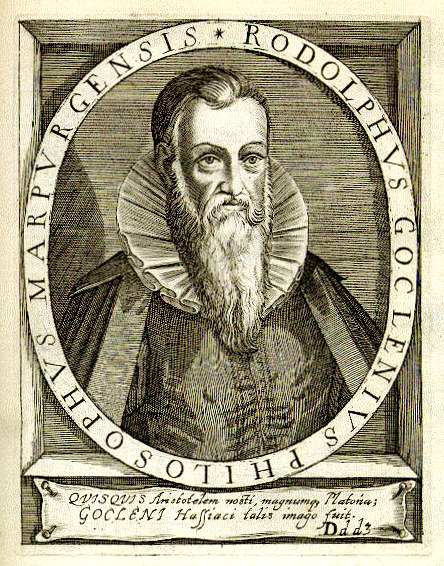<Back to Index>
- Philosopher Rudolph Goclenius, 1547
- Sculptor Giovanni Duprè, 1817
- French Revolutionary François Nicolas Léonard Buzot, 1760
PAGE SPONSOR


Rudolph Göckel or Rudolf Goclenius [the Older] (1 March 1547, Korbach, Waldeck – 8 June 1628) was a German scholastic philosopher, credited with inventing the term psychology (1590). In his Lexicon philosophicum (1613) he used the term ontology coined by Jacob Lorhard in his Ogdooas Scholastica (1606). He was born in Korbach, Waldeck (now in Waldeck - Frankenberg, Hesse), and died in Marburg.
He attended university at the University of Erfurt, the University of Marburg and the University of Wittenberg, where he finished his studies with a M.A. in 1571. In the following years he directed the gymnasiums in his hometown Korbach and in Kassel. In 1581, Landgraf Wilhelm IV of Hesse - Kassel, who was a reputed astronomer, refused his wish to return to Korbach, but allowed him to be appointed professor at the Philipps University of Marburg, where he held the chairs of philosophy, logic, metaphysics and ethics. He served as a counsellor to Wilhelm and his son Moritz. The latter sent him in 1618 to the Synod of Dort. He was highly literate and wrote articles on many subjects, not only philosophy but also mathematics, geography, astrology (or astronomy), botany, zoology, and medicine.
Goclenius' crowning achievement is his original contribution made to Term Logic, called the Goclenian Sorites. These take the form of a series of syllogisms chained as follows:
- s = t
- r = s
- q = r
- p = q
Thus:
- p = t.
In the words of the British logician Carveth Read: "It is the shining merit of Goclenius to have restored the Premises of the Sorites to the usual order of Fig. I.: whereby he has raised to himself a monument more durable than brass, and secured indeed the very cheapest immortality. How expensive, compared with this, was the method of the Ephesian incendiary!"
His oldest son Rudolf Goclenius, Jr. was professor in Marburg, and a celebrated mathematician. It is after Rudolph Goclenius, Jr., that the lunar crater is named.
From his dispute with Wilhelm Adolph Scribonius of Marburg on the legality of the ordeal by water in witch trials, one can deduce that Goclenius was convinced on the existence of witchcraft and adhered to the "Hexenhammer".